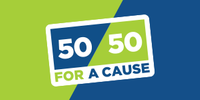The renewal of public health orders yesterday by the government of Saskatchewan might reasonably lead some people to think the province hasn't made that much headway against COVID-19. The government's best medical minds are taking a slightly more optimistic view of things, however.
Speaking at a press conference yesterday, Saskatchewan's Chief Medical Health Officer took a break from delving into public health orders to briefly lay out what he saw as progress in the long-standing fight against COVID. Active cases had declined dramatically in the province's report released just an hour and a half before the press conference.
"All the indicators are moving in the right direction," Dr. Shahab said. "It's slow and it's steady. Our daily case numbers have come down from 24 per hundred thousand to 20. Active case numbers daily have come down, 329, 266. It's slow, but it's in the right direction."
People in Saskatchewan may feel stagnant, as many of the current public health orders, including mandatory masking province-wide, have been in place since the end of November. The public health orders prohibiting gatherings in the household, meanwhile, have been in place since December 17 and will be until at least February 19.
"It's coming down throughout the province, and I think that's really important," Dr. Shahab said. "It's still too high, unfortunately, in terms of the number of hospitalizations and deaths, and as the Premier said the vaccination is important, it's critical, but the supply is of a nature that it will be slow and steady for the next few weeks."
The province recorded a single-day high for deaths yesterday with 14. Some positive news came from a dramatic spike in recoveries, however, as the province recorded 839 recoveries and active cases dropped back below 3000, all the way to 2665.
"With our public health measures, some people say it is too little, some people say it is too much," Dr. Shahab said. "But they do try to strike a fine balance between minimizing cases as long as the guidelines are followed and letting people work and enjoy other amenities as much as possible. Obviously, it does impact some people more than others."
Dr. Shahab added the recent downward trend indicated that public health orders as they are do work to slow the spread of the virus. He also said that more measures were always an option if cases were to go up, but he also had to consider economic and mental health factors in the restrictions.













